Cities in Action: Expert Conversations for Urban Solutions
In collaboration with the Indian Institute for Human Settlements, the Hixon Center is pleased to host a webinar series on comparative urban solutions in Indian and U.S. cities. The series will bring together experts from diverse fields to discuss different approaches to driving sustainable change in cities.
Key Topics that will be covered in this webinar series:
• Urban Infrastructure Resilience
• Urban Hydrology
• Urban Heat
• Urban Forestry
Dive into expert conversations, cutting-edge research, and practical insights that shape the future of resilient and sustainable cities.
Speaker Information
An urban and land change scientist, Karen Seto is one of the world’s leading experts on contemporary urbanization and global change. She uses satellite remote sensing, field interviews, and modeling methods to understand how urbanization will affect the planet, including land change, food systems, biodiversity, and climate change. She has pioneered methods to reconstruct urban land use with satellite imagery and has developed novel methods to forecast urban expansion. She has conducted urbanization research in China for twenty years and in India for more than ten. Dr. Seto has served on numerous national and international scientific bodies. She was a coordinating lead author for the 2022 IPCC 6th Assessment Report and the 2014 IPCC 5th Assessment Report. For both reports she co-led the chapter on urban mitigation of climate change. She currently co-chairs the U.S. National Academies Climate Security Roundtable, established by the direction of Congress to help better understand and anticipate the ways climate change affects U.S. national security interests. She also co-chairs the U.S. National Academies Subcommittee on U.S.- China Scientific Engagement. From 2000 to 2008, she was faculty at Stanford, where she held joint appointments in the Woods Institute for the Environment and the School of Earth Sciences. She has received many awards for her scientific contributions, including the Outstanding Contributions to Remote Sensing Research Award from the American Association of Geographers.
Dr. Seto is an elected member of the U.S. National Academy of Sciences, the American Academy of Arts and Sciences, the Connecticut Academy of Science and Engineering, and a Fellow with the American Association for the Advancement of Science. She received a PhD in Geography from Boston University.
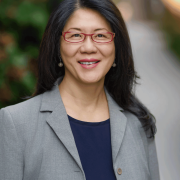
Speaker Information
Aromar Revi is the founding Director of the Indian Institute for Human Settlements (IIHS). He is a global thought leader and educator with 40 years of interdisciplinary experience, and an alumnus of IIT Delhi and the University of Delhi's Law and Management schools.
He has led over 235 practice, policy, and research assignments worldwide. His interdisciplinary work spans sustainable development, urbanization, climate science, and disaster risk reduction. Aromar has advised the Government of India, UN agencies, and international institutions on urban and economic governance, finance, and environmental change.
Aromar is Co-Chair of the UN Sustainable Development Solutions Network, a member of the UCLG-Ubuntu, and the Global Commission on the Economics of Water. He is a CLA of multiple IPCC reports and one of South Asia's leading disaster risk reduction professionals.

Speaker Information
David Kooris is the first Executive Director of the newly-formed Connecticut Municipal Redevelopment Authority (MRDA), a statewide quasi-public authority established to provide towns and cities across Connecticut with the resources necessary to realize substantial housing production in their downtowns and transit station areas.
Mr. Kooris previously held various public and civic sector positions focused on urban revitalization and placemaking, resilience and emissions reduction, and coordinated land use and transportation planning including: President of Stamford Downtown; Board Chair of the Connecticut Port Authority; Deputy Commissioner at the Connecticut Department of Economic and Community Development; Director of Resilience at the Connecticut Department of Housing; Director of the Office of Planning and Economic Development and Executive Director of the Redevelopment Agency for the City of Bridgeport; and Vice President and Connecticut Director at Regional Plan Association.
Since 2012, Mr. Kooris has been a lecturer at Yale University’s School of Environment and in Spring 2025 will transition to Yale’s School of Architecture.
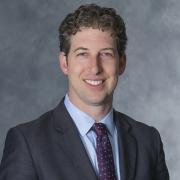
Speaker Information
Jagdish Krishnaswamy is the Dean, School of Environment and Sustainability (SES) at IIHS. He has a BTech in Civil Engineering from the Indian Institute of Technology (IIT) Bombay, and an MS in Statistics and Decision Sciences and PhD in Environmental Science with a focus on soils and hydrologic science from Duke University, North Carolina, USA.
As the Dean of SES, Jagdish leads the build-out of the School, providing strategic direction and operational guidance to expand its academic footprint, research activities and network, practice portfolio, and capacity-building initiatives. Jagdish helps in the development of the IIHS Kengeri campus and its environs as India’s first Long-Term Urban Ecological Observatory (LTUEO) and strengthen IIHS’s profile in ecology and conservation science.
Jagdish’s research has spanned the entire continuum from the semi-wild to the urban covering USA, Costa Rica, Africa, and India in ecohydrology, landscape ecology and biodiversity. His work on conservation science and planning led to the nomination of the Western Ghats biodiversity hotspot as a UNESCO World Heritage Site besides informing the investment of the Critical Ecosystem Partnership Fund (CEPF) civil society-led pilot projects. His work in ecohydrology, impact of invasive species and ecological flows in rivers has influenced policy and management at the state and centre. He is part of the team that released a report for policymakers on state of the art on ecological restoration in India as well the first ever mapping of priority sites for both biodiversity and ecosystem service both sponsored by the Government of India’s Mission on Biodiversity and Human wellbeing.
Jagdish’s work in climate science and impact of extreme rain and warming on ecosystems across India using both, densely gauged catchments and remote sensing time-series data as well as his policy relevant work in conservation planning led to his nomination for the scoping and design of the IPCC Special Report on Land and Climate. He was soon nominated as coordinating lead author for the synthesis chapter of this special IPCC report on land and climate, besides contributing as an author to several parts of the entire report and negotiating it acceptance at the plenary with governments. In 2022, he was part of the team of IPCC authors who crafted and wrote the three volume Summary for Urban Policymakers, a synthesis of the urban relevant parts of all the IPCC AR6 cycle reports. In Bengaluru, his work on the LTUEO, the first of its kind for a mega-city in the Global South includes research, practice and training that connects food, water, ecology and biodiversity in an urbanising context.
Jagdish has supervised five PhD and over 10 master’s students. Jagdish serves on the editorial board of three interdisciplinary journals Urbanisation, Ecology, Economy and Society and Water Security and on the Board of Trustees of the MS Swaminathan Research Foundation, Chennai, India.

Speaker Information
S. Vishwanath is a Civil Engineer and an Urban Planner.
He has 38 years of experience in the water, waste-water and sanitation sector helping design rainwater harvesting, aquifer recharge, wastewater recycling and ecosan systems.
He is a visiting faculty and teaches a course on the theme – “Water” at the Azim Premji University, Bengaluru, India.
He is a Trustee with the Biome Environmental Trust.
He is a technical committee member with the Bangalore Water Supply and Sewerage Board, the Rural Development Engineering Department Government of Karnataka for the Jal Jeevan Mission scheme.
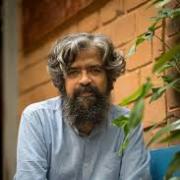
Speaker Information
Gerald W. Bright Jr. (MESc. 2008) is a West Philadelphia native and proud civil servant. In his first 16 years of service with the Philadelphia Water Department, he worked in various roles including researcher, project manager, and public educator. His most notable contribution was spearheading the creation of the Green Stormwater Operations Unit. In August of 2024 he began his current role as Assistant Director of the Mayor’s Office of Clean and Green Initiatives, where he coordinates operations for ongoing citywide cleaning and beautification programs. This work is aimed at addressing chronic quality of life issues while also initiating greening efforts for healthier ecosystems in residential neighborhoods and commercial corridors.

Speaker Information
Katharine Mach is professor and chair of the Department of Environmental Science and Policy at the University of Miami Rosenstiel School of Marine, Atmospheric, & Earth Science. During Spring 2025, she is the Coleman P. Burke Distinguished Visiting Professor at the Yale School of Environment. Her research assesses climate change risks and response options to address increased flooding, extreme heat, wildfire, and other hazards. Through innovative approaches to integrating evidence, she informs effective and equitable adaptations to the risks. Mach has served as a chapter lead and author in the Fourth through Sixth US National Climate Assessments and as a science director and lead author for the IPCC Fifth and Sixth Assessment Reports. Mach was the 2020 recipient of the Piers Sellers Prize for world leading contribution to solution-focused climate research. She received her PhD from Stanford University and AB summa cum laude from Harvard College.
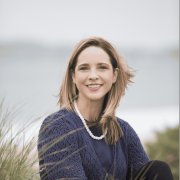
Speaker Information
Prathijna Poonacha Kodira is a researcher and practitioner who works on climate change adaptation, focusing broadly on how social and environmental systems respond to impacts of climate change, especially in urban and peri-urban geographies. Specifically, her work looks at livelihood transitions, nature-based solutions as adaptation, and the intersection of climate change and the built environment. Prathijna is experienced in enabling and engaging in multi-stakeholder processes for dialogue and decision-making using approaches such as Transformative Scenario Planning and Appreciative Inquiry. In the process, she is interested in unpacking the complexity of participatory decision-making, especially in the urban context.
At IIHS, Prathijna has worked on several large multi-country, multi-partner projects, including the IDRC/FCDO-funded Adaptation at Scale in Semi-arid Regions (ASSAR) (2014–18), the British Academy-funded Urban and Peri-urban Agriculture as Green Infrastructure (2019–22), GIZ and Resilience First-funded Summary for Urban Policymakers (2022), and the AfD-funded Greening Urban Food Systems (2023–24). Additionally, Prathijna has also been part of the Director’s Office at IIHS since 2020, working closely with the Director, and contributing to strategic institution building processes and activities.
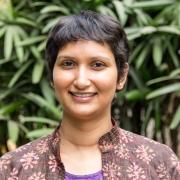
Speaker Information
Dr. Narasimha D. Rao's research examines the relationship between energy systems, human development and climate change. His current focus is on investigating the household-level impacts of energy transitions policies in the US and around the world. His project entitled Decent Living Energy quantifies the material requirements and energy needs for the eradicating multidimensional poverty around the world. His research interests also include investigating income inequality, compound vulnerabilities to climate change, and climate policy analysis. His methods include household energy modeling, econometrics, input-output, and policy analysis. His work has been supported by the European Research Council, National Science Foundation, Environmental Protection Agency and other organizations.
Dr. Rao is also a Senior Research Scholar at the International Institute for Applied Systems Analysis. He received his PhD from Stanford University in Environment and Resources, Masters from Massachusetts Institute of Technology in Electrical Engineering and Technology Policy, and A.B from Dartmouth College.
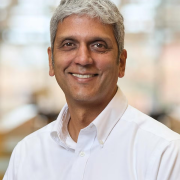
Speaker Information
Dr. Shalini Dhyani is a Principal Scientist at the CSIR-National Environment Engineering Research Institute, India. She is a visiting scientist at CIFOR, Bogor Indonesia. She is Asia Vice Chair and Steering Committee member in the Commission on Ecosystems Management of IUCN and Associate UNESCO-TWAS. Shalini works on socio-ecological interlinkages, following diverse knowledge systems and sustainability science approaches for ecosystem health assessments, and implementing nature-based solutions (NbS). She has been the lead author of the two IPBES assessments and is also involved as the lead author for the upcoming sping-shed assessment by ICIMOD, Nepal, and another on forest resilience by IUFRO.
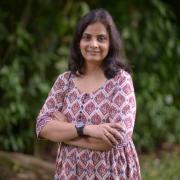
Speaker Information
Joan Keener is the Deputy Director of Trust for Public Land’s New York City Playgrounds Program. A native New Yorker, with a background in community organizing and gardening, Joan left a career in journalism to join Trust for Public Land in its mission to connect children to urban green spaces. Over the past 17 years, she has supervised participatory design, community engagement and post-opening activation at 120 green schoolyards across the five boroughs. Helping to manage an ongoing partnership with the Department of Environmental Protection and Mayor’s Office of Climate and Environmental Justice to build climate resilient playgrounds, she has overseen site selection, budgeting, and community engagement at 56 green-infrastructure sites, designed to capture an average of 1 million gallons of storm water annually each. She has a B.A. in Dance and Political Philosophy from Sarah Lawrence College.
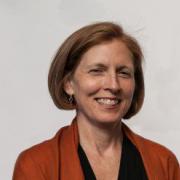
Speaker Information
Dr Manan Bhan is currently a Fellow in Residence at the Ashoka Trust for Research in Ecology and the Environment (ATREE), a global leader among environmental think-tanks. He leads public-facing action research focussing on sustainable land use and climate research both inside and outside cities. In Bengaluru, he is leading efforts to develop hyper-local toolkits to combat heat stress.

